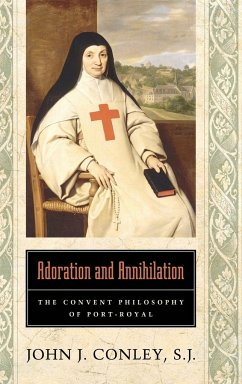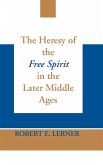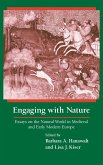In seventeenth-century France, southwest of Paris, the Port-Royal convent became the center of the Jansenist movement and of its adherents' resistance to church and throne. Three abbesses from the Arnauld family spearheaded this resistance: Mère Angélique Arnauld (1591-1661), Mère Agnès Arnauld (1593-1671), and Mère Angélique de Saint-Jean Arnauld d'Andilly (1624-1684). Although many books have been written about the tragic lives of the Port-Royal nuns, John J. Conley provides the first study of the radical Augustinian philosophy developed by these remarkable abbesses during decades of persecution by Louis XIV and his ecclesiastical allies. Openly declaring themselves "disciples of Saint Augustine," the Arnauld abbesses forged a philosophy notable for its original treatment of the attributes that stressed divine otherness; a moral philosophy of virtue rooted in grace; and a politics that supported the right of women to resist abuses of religious and civil authority. Although their philosophy was clearly influenced by their male Jansenist mentors, the nuns' radical Augustinianism maintains its own gendered originality: their philosophy of virtue is closely tied to practices valued in a contemplative convent setting; their defense of freedom of conscience is linked to their defense of women's right to exercise religious authority; and their negative theology, focused on divine incomprehensibility, depicts a God beyond sexual difference. A fascinating account that includes translations ranging from abbatial conferences to private letters, Adoration and Annihilation is an important chronicle of the doctrinal battles of early modern Catholicism. "From Sainte-Beuve's history of Port-Royal to more recent accounts of the events leading to the destruction of Port-Royal des Champs, examinations of the lives and fortunes of seventeenth-century Jansenist men and women are not new. Nor are detailed studies of the philosophical views of Jansenist men, such as that of Blaise Pascal. Adoration and Annihilation, however, presents us with something new and important. In this original and long-overdue contribution to intellectual history, we are given a painstaking analysis of documents that provides a portrait of the philosophically and theologically inspired thought of three of the women of Port Royal. Conley not only gives evidence of the women's commitment to a negative theology and an Augustinian theory of grace and human free will, he uses gender as a lens through which to reconstruct the women's emerging virtue ethics-an ethics whose central virtues are the mainstays of early modern female monastic life." -Eileen O'Neill, University of Massachusetts "John J. Conley, S.J., brings to life, in amazing technicolor, the complex personalities of the long-overlooked and complicated Port-Royal Arnauld women philosophers. Steeped in historical, religious, and philosophical significance, Conley's lively account highlights the intricacies of the historical setting of the Port-Royal Convent-the political intrigues, the economic power plays, and the often desperate condition of the women who are the main characters. This is an exciting and useful contribution for those teaching philosophy, religion, women's studies, French literary studies, and history." -Mary Ellen Waithe, Cleveland State University "John J. Conley provides a fascinating analysis of the neo-Augustinian theological and ethical thought of the nuns of Port-Royal that makes a convincing case for their inclusion in an expanded canon of philosophy. Conley's writing is erudite and his arguments are meticulously researched and supported, making Adoration and Annihilation accessible even for the reader with little background in Augustinian thought. The richness of historical detail and the insight with which he treats these women philosophers and their writings means that Conley does more than render their work visible, he also bri
Hinweis: Dieser Artikel kann nur an eine deutsche Lieferadresse ausgeliefert werden.
Hinweis: Dieser Artikel kann nur an eine deutsche Lieferadresse ausgeliefert werden.








